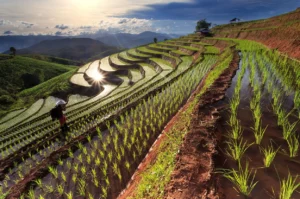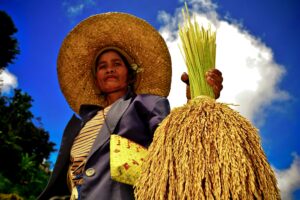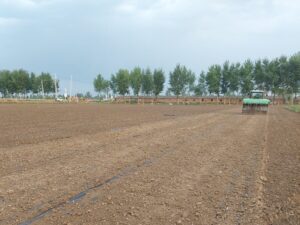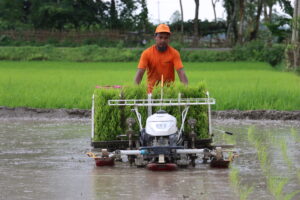
After labor, fertilizer is the most expensive input in rice farming. However, as crucial as fertilizer may be in improving rice production—despite the costs—the inefficient use of fertilizer can render its application futile and, worse, it can even be harmful to the environment.
On large-scale, mechanized farms in North America, Europe, Australia, and parts of South America, fertilizer can become more efficient through precision farming, which matches the application of fertilizer with location-specific needs of the crop by using such technologies as global positioning systems (GPS), variable-rate application equipment, and accurate field-mapping technologies. However, these sophisticated and expensive technologies are typically unsuitable for small-scale farmers, which include most rice farmers in Asia. So, what methods are appropriate to deliver fertilizer information to small-scale farmers in a rapid, accessible, and inexpensive way?
Roland Buresh, principal scientist at the International Rice Research Institute, and his team have spent thousands of hours turning the idea of small-scale precision farming into a reality through the decision tool known as Nutrient Manager for Rice (NMRice). This computer-based software guides farmers in applying fertilizer properly and efficiently in their respective rice fields. The software, which was first Extension goes made available on CD and through the Internet, was intended to assist extension workers and farmers in accessing recommendations regarding fertilizer application specific to the conditions of a rice farm. (See Site-specific Nutrient Management). But the necessity for computers, Internet, and even electricity to run these tools limits access for many small-scale farmers in Asia.
Hence, Dr. Buresh’s team thought of using the mobile phone since it is affordable and widely available to farmers. NMRice Mobile was created to transfer the information available from the Web version to a mobile phone application that provides rapid, accessible, inexpensive, and credible field-specific fertilizer recommendations to farmers through a basic SMS (short messaging system). A farmer simply calls a toll-free number and is guided by an automated voice to answer several questions about his or her farm by pressing the corresponding button on the mobile phone. After all the questions have been answered, the farmer receives a text message, which recommends optimal timing, amount, and type of fertilizer to be applied to the farmer’s rice field.









